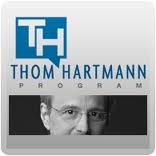
 The oligarchs are making their voices heard this election. A new analysis of SuperPAC donations by the Center for Public Integrity finds that just ten donors are responsible for one-third of the $202 million of SuperPAC money so far this election. Of those ten donors – seven are individuals and four are billionaires. Leading the way is casino mogul Sheldon Adelson who’s dished out $26.5 million so far – mostly on Newt Gingrich’s failed campaign. Others on the list include billionaire Texas home-builder Bob Perry who’s spread his 6.7 million around between Mitt Romney and Karl Rove’s SuperPACs, Libertarian PayPal co-founder Peter Thiel who bankrolled Ron Paul’s campaign with $2.7 million, and bankster Foster Friess who propped up Rick Santorum with a couple million dollars. And then there are the anonymous donors out there who the American people will likely never know about – spending tens of millions of dollars on right-wing SuperPACs. I’m guessing Mahmoud Amadenijad is one of them, considering how good the Republican Party has been to the Iranians – selling them weapons in the 1980’s – material to build nuclear bombs in the 1990’s – and taking out their top enemy, Iraq, in the 2000s. Ahmadenijad is just making an investment for another decade of good relations with the Republican Party.
The oligarchs are making their voices heard this election. A new analysis of SuperPAC donations by the Center for Public Integrity finds that just ten donors are responsible for one-third of the $202 million of SuperPAC money so far this election. Of those ten donors – seven are individuals and four are billionaires. Leading the way is casino mogul Sheldon Adelson who’s dished out $26.5 million so far – mostly on Newt Gingrich’s failed campaign. Others on the list include billionaire Texas home-builder Bob Perry who’s spread his 6.7 million around between Mitt Romney and Karl Rove’s SuperPACs, Libertarian PayPal co-founder Peter Thiel who bankrolled Ron Paul’s campaign with $2.7 million, and bankster Foster Friess who propped up Rick Santorum with a couple million dollars. And then there are the anonymous donors out there who the American people will likely never know about – spending tens of millions of dollars on right-wing SuperPACs. I’m guessing Mahmoud Amadenijad is one of them, considering how good the Republican Party has been to the Iranians – selling them weapons in the 1980’s – material to build nuclear bombs in the 1990’s – and taking out their top enemy, Iraq, in the 2000s. Ahmadenijad is just making an investment for another decade of good relations with the Republican Party.



